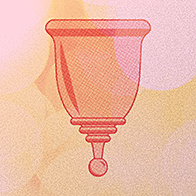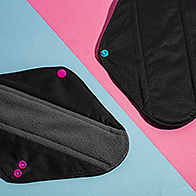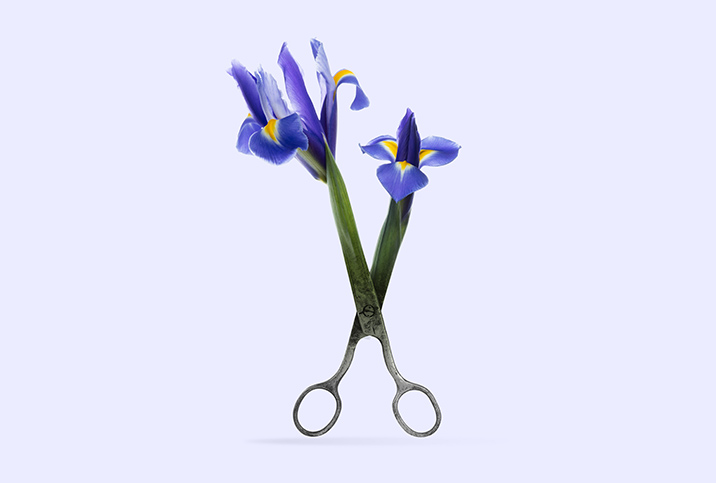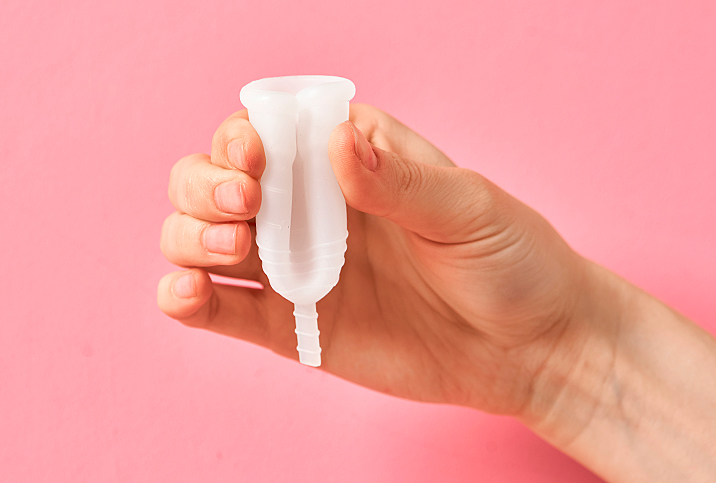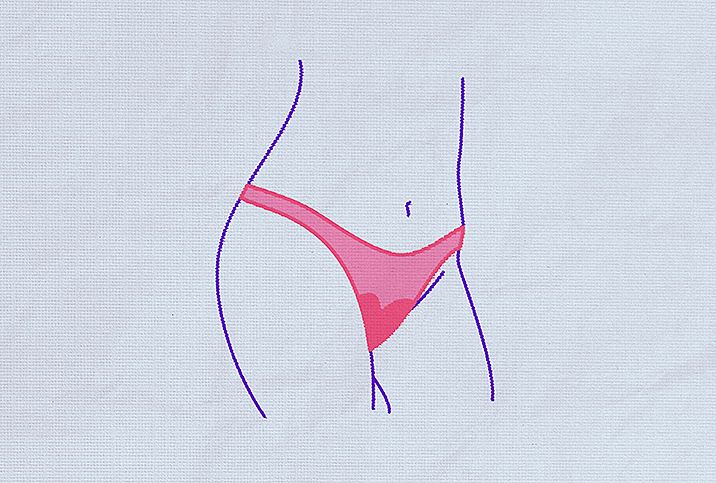So You Want to Go Green? What You Should Know About Reusable Period Products
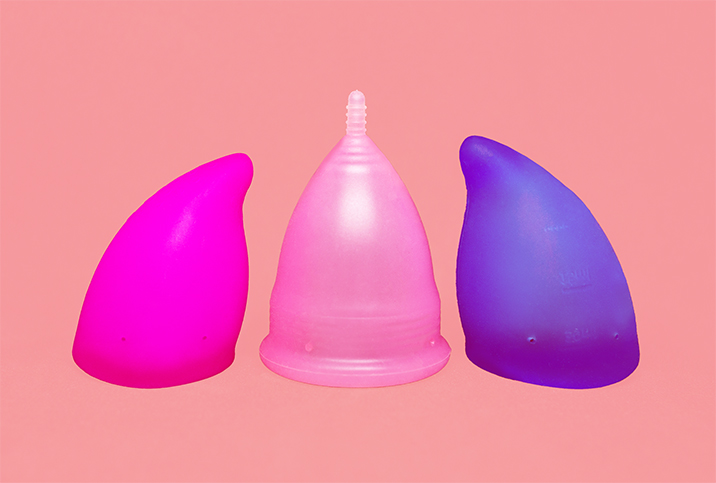
The average menstruating person uses between 108 to 504 disposable products per year. Reusable period products, such as underwear, cups and discs, offer an environmentally friendly option. But Mother Nature might not be the only one reaping the health benefits of sustainable menstruation solutions. We talked with several medical professionals who say your vagina will thank you, too.
A brief history of menstrual products
While the discreet and aesthetically pleasing reusables popping up in your Instagram feed or Amazon recommendations are a modern-day innovation, the concept of reusable menstrual products is nothing new.
For centuries, most people with periods used homemade plant fibers, cloths and towels to absorb menstrual blood. The problem was, until the latter half of the 19th century, hygiene standards in many societies left much to be desired, making bacterial growth and infections a possible side effect of a person's monthly cycle.
As understanding of health and hygiene evolved, so did the desire for more sanitary and convenient solutions. Twenty menstruation product patents were filed between 1854 and 1915, and in 1937, Leona Chalmers invented the first pliable menstrual cup made of soft material (as opposed to aluminum or hard rubber).
Even after the invention of the menstrual cup, women turned to disposable options, such as the modern tampon patented in 1933, and the sanitary belt (the first pad featuring an adhesive to keep it in place) invented in 1956.
In the 1970s, people with ovaries pushed back against the patriarchy in full force, demanding the conversation around women's health and menstruation be brought to the forefront, paving the way for a broader range of convenient, healthy and sustainable period solutions.
Within the past 20 years, another period renaissance has emerged, spawning a new wave of menstrual product innovations, including eco-friendly and convenient solutions like reusable pads, discs, cups and underwear.
What health risks do menstrual products pose?
According to June Gupta, N.P., director of medical standards at Planned Parenthood Federation of America, when used as directed, most period products—both disposable and reusable varieties—are safe, but carry a slight risk for infections, such as bacterial vaginosis (BV) or urinary tract infections (UTIs).
The most significant, though rare, danger is toxic shock syndrome (TSS), a sudden and potentially fatal condition caused by certain bacteria, including Staphylococcus aureus and Streptococcus pyogenes.
Super-absorbent tampons are more likely than other products to cause TSS, which typically occurs when the product is left in for longer than the maximum recommended time frame.
Amy Roskin, M.D., chief medical officer at the Pill Club, an online birth control source, said the chances of getting TSS are slim with disposable products but greater with reusable tampons. Currently, the U.S. Food and Drug Administration (FDA) advises against reusable tampons and has only approved single-use varieties.
Similarly, in a peer-reviewed study of 486 women, those who used reusable pads were more likely to be diagnosed with BV or a UTI than those who used disposable varieties, reinforcing Gupta's point that these products need to be used—and sanitized—as directed to help prevent infections.
Irritation, itching and yeast infections are more prevalent, though less threatening, issues.
Vulvar and vaginal irritation may be caused by an adverse reaction to certain chemicals or fragrances found in some disposable options, so this may be one advantage of opting for reusable and organic products, which are less likely to contain such additives.
"There is very little evidence that disposable tampons and pads increase the potential for infection or irritation compared to other period products, but ultimately it's up to your preference and what puts your mind at ease," said Gupta.
Are there health advantages in reusable products?
There are currently no scientific studies that indicate any health benefits in reusable menstrual products. But some experts and anecdotal accounts suggest they exist.
"Menstrual cups afford women with many advantages, including the ability to quantify flow, environmental and sustainability benefits, and huge cost savings over time," said Alyssa Dweck, M.S., M.D., FACOG, and Sexual and Reproductive Health expert for INTIMINA. "Additionally, since menstrual cups collect flow rather than absorb it, they may eliminate vaginal dryness, irritation or cramping in some women. "Dweck added that many cups are made with naturally bacteriostatic medical-grade silicone, which is less likely to cause irritation compared to synthetic fibers.
Women can also more accurately quantify flow amount and color with cups. Some variation in color and flow is normal and expected. However, certain unusual changes may be cause for concern. Pink blood, for instance, can be one sign of low estrogen, while gray or orange blood may indicate an infection.
According to Kim Rosas, founder of Period Nirvana, the majority of menstrual cup and disc users report positive changes to their vaginal health after switching from tampons, including fewer or less severe period cramps and shorter or lighter periods.
"No official studies have been done on if and how reusable cups and discs have this change in menstrual cycles, but it's been observed by enough users that it can't possibly be imaginary," Rosas said, adding that some speculate these changes may be a matter of perception rather than a biological change.
Rosas said a popular theory is that certain chemicals in disposable products may extend period flow and duration. Others suggest the shorter duration may result from the cup's mild suction on the cervix, which might draw blood out more quickly and reduce total cycle length.
'Menstrual discs allow for less mess or even mess-free sex during menstruation, which many find to be a huge advantage since sexual drive can soar at this time of the cycle.'
Regardless of whether cups actually reduce period flow or duration, Rosas said their benefits can extend beyond menstruation.
"They can have a real positive impact on vaginal health. Fewer yeast infections and a better sex life, thanks to the nonabsorbent nature of cups or discs, are common," she said.
The compressed rayon or cotton fibers in most tampons can be a breeding ground for bacteria, Rosas explained, especially if the tampon isn't changed within the recommended time frame.
Also, due to their absorbent nature, tampons inevitably soak up the body's natural lubricants along with period blood. For some people, this creates dryness that lasts far beyond their period.
"Since reusable menstrual cups and discs are made from either medical-grade silicone or TPE (thermoplastic elastomer), these products have a smooth surface area and are less likely to create the same type of environment for bacteria growth than tampons, even if worn for a full day," Rosas said.
The maximum recommended wear time for cups and discs is 12 hours.
Rosas added that maintaining natural lubrication is also conducive to a healthy pH, another factor that can promote better vaginal health.
"These factors all make for an overall healthier vaginal flora, and many users report, anecdotally, that they have fewer yeast infections after switching from tampons to a cup or disc," Rosas said.
Dweck said discs may have the additional advantage of making period sex easier. "Menstrual discs allow for less mess or even mess-free sex during menstruation, which many find to be a huge advantage since sexual drive can soar at this time of the cycle."
Are certain reusable products better than others?
Cups and discs have a bit of a learning curve compared to leakproof underwear or reusable pads. Rosas also noted the former might be difficult to use for people with disabilities and other challenges.
But most reusable products are considered safe, provided they're changed at appropriate intervals, properly cleaned and produced by a reputable manufacturer.
"Speaking strictly from a health perspective, there are several safe alternatives to pads and tampons, and the method you choose is totally up to you," said Gupta.







